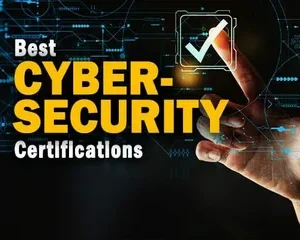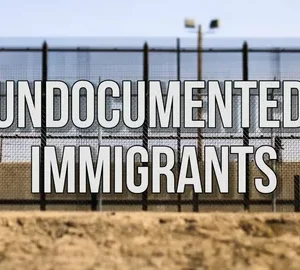Introduction
No one expects to wakes up one morning and find out there’s been a murder in their hostel. That sounds like something out of a Netflix thriller, right? But unfortunately, real life can take dark turns, and implications can occur even when you’re just trying to focus on your studies abroad.
For international students, such a situation can be even more terrifying. You’re far from home, dealing with a foreign legal system, and unsure who to trust. That’s exactly why you need to “know what steps to take” — not to panic, not to interfere, but to protect yourself legally, emotionally, and physically.
In this post, we’re going to walk through everything you need to do if such a situation ever happens near you.
First Things First – Ensure Your Safety
Leave the Scene Immediately
The moment you hear or suspect something violent has happened, get out Fast, Don’t try to investigate. You’re not Sherlock Holmes, your first responsibility is your own safety and wellness.
Avoid Touching Anything or Intervening
It’s tempting to try and help, maybe someone’s hurt, or you want to check what’s going on. But in cases of murder, the scene is a crime scene. Touching anything could tamper with evidence during investigations or put you in unnecessary trouble you could avoid.
Move to a Secure Area and Stay Visible
Head to a public, well-lit, populated area, like the main building, campus café, or the library. Make sure people know where you are and that you’re safe.
Notify the Authorities Right Away
Who to Call First: Emergency Numbers in Your Host Country
Know your host country’s emergency hotline. For example:
-
South Korea: 112 (Police), 119 (Medical/Fire)
-
U.S.: 911
-
UK: 999
Make the call immediately and report what you saw or heard.
What to Say and What Not to Say
Stick to the facts:
-
“There’s been a violent incident in my hostel.”
-
“I saw someone unconscious/bleeding.”
-
“I heard a loud scream and people running.”
Avoid speculation or guessing, no “I think someone was murdered.” Just facts.
Using Campus Security Services
Most universities have 24/7 security. Use their emergency numbers or alert guards on-site. They usually have direct contact with local police.
Report to Your Embassy or Consulate
Why Contacting Your Embassy Is Important
Your embassy is your lifeline. They can:
-
Ensure you get legal help
-
Notify your family
-
Assist with safe relocation
-
Intervene if there’s unfair treatment
Switzerland: https://bern.foreignaffairs.gov.ng
Sweden: https://nigerianembassy.se
Documents and Info to Provide
Have your passport number, student ID, and hostel details ready. They’ll likely open a case file on your behalf.
How Embassies Can Help You Legally and Emotionally
From connecting you to translators or lawyers, to helping with psychological support or even arranging travel, they’ve got your back.
Search for your embassy here: Embassies.net
Cooperate with Police and Investigators
Be Honest but Careful With Your Words
Tell the truth, but don’t exaggerate. Stick to what you directly experienced. If you’re unsure, say so. Don’t feel pressured to guess.
Know Your Rights as a Foreign National
You have the right to:
-
Remain silent
-
Request a translator
-
Ask for legal representation
Never sign anything you don’t fully understand.
Requesting Legal Representation or a Translator
If the police start taking formal statements or detaining individuals, demand a lawyer or translator. This isn’t being difficult — it’s your right.
Inform Your University and International Student Office
Why the University Needs to Know
Your university needs to:
-
Ensure your safety
-
File internal reports
-
Activate student emergency protocols
Getting Access to Emergency Support Services
Most universities offer:
-
Crisis counseling
-
Relocation services
-
Legal advice clinics
Head to your student office or international support center for help.
Campus Safety Policy and Response Mechanisms
Request to see the university’s crisis response plan. Schools are obligated to protect all students — including internationals.
Contact Family and Trusted Friends
What to Say When Sharing the News
It’s hard, but important. Say:
-
“I’m safe, but something serious happened here.”
-
“The police are investigating a violent incident at my hostel.”
-
“I’m being supported by my university and embassy.”
Keeping Loved Ones Calm and Updated
Don’t disappear for hours. Stay in touch. Give small, calm updates every few hours. Avoid shocking them with sudden news.
Emotional Support from Home
Your people back home can offer a sense of normalcy and comfort — which you’ll need during this storm.
Seek Professional Mental Health Support
Why Trauma Counseling Is Crucial
Witnessing or being close to a murder can trigger:
-
Anxiety
-
Panic attacks
-
PTSD
-
Sleep disorders
Don’t ignore it — even if you feel “fine.” Trauma hides.
Using On-Campus or External Services
Most schools offer free or discounted mental health support for international students. You can also check:
-
Local NGOs for trauma therapy
Free Resources for International Students
Stay Away from the Rumor Mill
The Dangers of Spreading Unverified Info
Speculation can:
-
Ruin investigations
-
Put innocent people at risk
-
Put you in legal trouble
Avoiding Social Media Commentary
Seriously — don’t post vague “OMG something crazy happened at my hostel!!” tweets. Just don’t.
Letting Authorities Handle Communication
Let police, school officials, or embassy staff be the voice. That’s their job.
Preserve Evidence (Without Interfering)
Note Down What You Saw and Heard
Jot down:
-
Time of the incident
-
Exact details (sounds, people, movements)
-
Your actions immediately after
Save Communication and Photos (If Applicable)
Don’t delete messages, screenshots, or anything related. They might help in court.
How Evidence Helps Justice
You’re not trying to play detective — you’re helping the legal system function properly.
Understanding Local Law Enforcement
How Investigations Work in the Host Country
Learn the local process:
-
Are you a witness or suspect?
-
How long do investigations take?
-
Will you have to testify?
Differences from Your Home Country’s Legal System
For instance, in South Korea, police may detain individuals longer before pressing charges compared to Western countries.
Being Respectful and Culturally Sensitive
Follow local customs and etiquette during questioning or court proceedings.
Know Your Rights and Legal Obligations
Can You Be Detained or Questioned?
Yes. But you can’t be detained indefinitely without reason. Ask for embassy involvement immediately.
Legal Protections for Foreign Students
International law protects non-resident students from unfair targeting or treatment. You have rights — know them.
Hiring a Lawyer or Legal Aid Options
Can’t afford one? Your embassy, university, or local NGOs can help you connect with pro-bono legal support.
Possible Relocation or Emergency Housing
Requesting to Move Hostels or Housing
You have every right to request a change, especially if you feel unsafe.
Temporary Stay Options Provided by the School
Universities often have emergency dorms or can place students in hotels during crisis periods.
Safety Precautions Before Returning
Don’t rush back. Make sure:
-
The investigation is complete
-
You feel emotionally ready
-
The environment is stable again
Resume Normalcy: How to Heal and Move On
Rebuilding Your Routine and Mental Strength
Go slow. Resume classes, hang out with friends, get sunshine. Normalize again — at your pace.
Support Groups and Peer Communities
You’re not alone. Other students may be shaken too. Talk. Connect. Heal together.
When to Take a Break or Transfer Schools
If it’s too much, talk to your student office about deferment or transferring. Your mental health comes first.
Preventative Measures Going Forward
Choosing Safer Hostels and Residences
Look for:
-
24/7 security
-
Controlled access
-
CCTV systems
Staying Alert Without Being Paranoid
Be aware of:
-
Who enters your hostel
-
Unusual behavior
-
Late-night disturbances
Self-Defense and Safety Training
Take basic self-defense classes. Many schools offer them for free to international students.
Conclusion
Nobody prepares you for witnessing a murder — let alone in your own hostel. But if it ever happens, remember this: your safety, rights, and mental well-being come first. Get help, stay calm, and follow the legal steps. You’re not alone, and there are systems in place to protect and guide you.
You came abroad to study — don’t let one tragedy define your journey. Stay safe, stay informed, and keep going.
FAQs
1. Can I be deported if a murder happens near me?
No. If you’re not involved, you won’t be deported. Just follow the legal process and cooperate.
2. Should I hire a lawyer even if I’m just a witness?
It’s a smart move. Especially if you’re uncomfortable with the language or local legal system.
3. Will this affect my visa status?
Only if you’re implicated in a crime. Otherwise, your visa should remain unaffected.
4. Can I change hostels immediately?
Yes. Request this through your university’s housing or international office. Most schools are very understanding in emergencies.
5. What if I don’t feel safe after the incident?
Speak to your embassy, university, or student support staff. You can get relocated or take a short leave for mental recovery.









